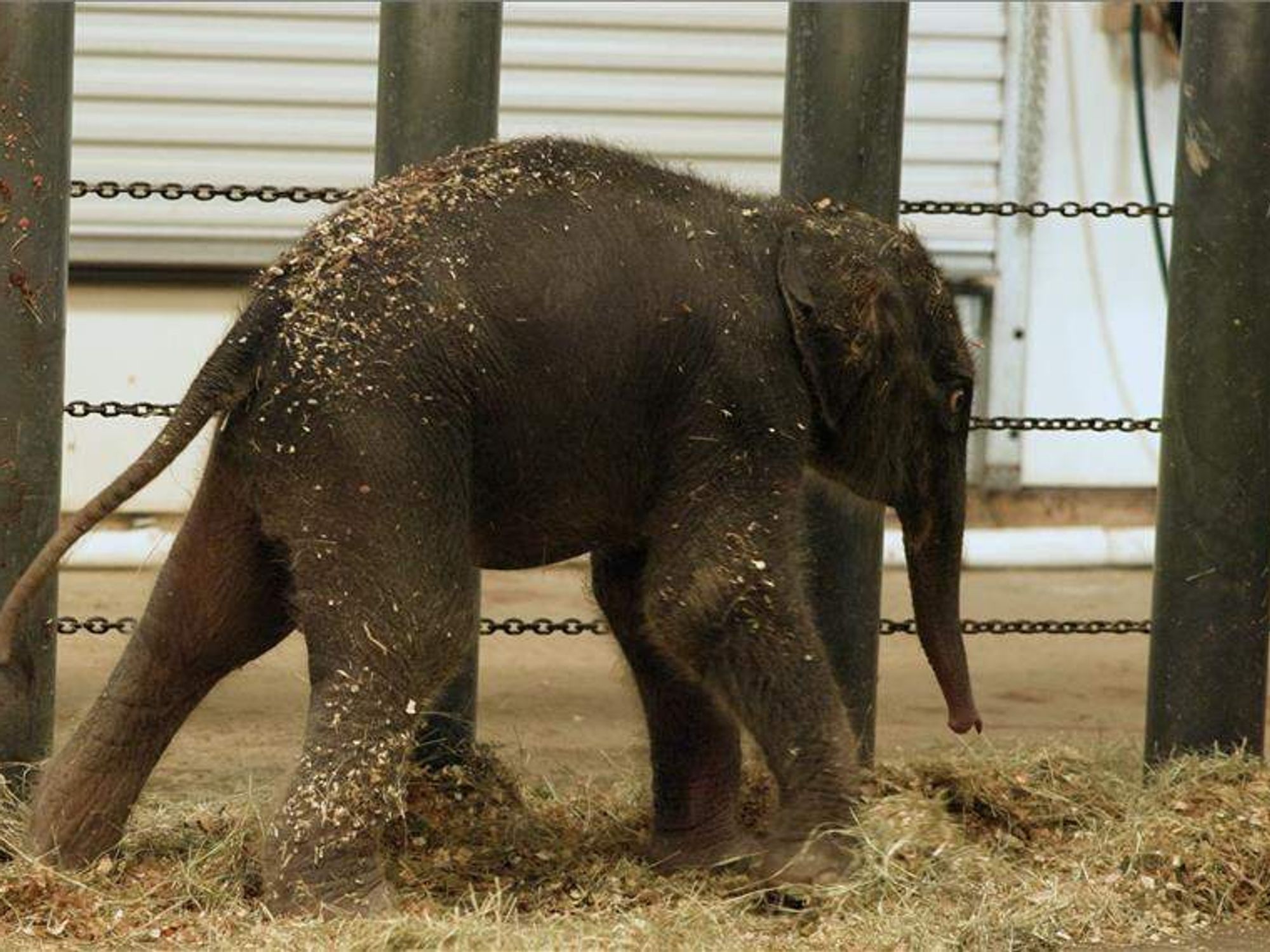what's new at the zoo
Houston Zoo welcomes Kirby, a newly-born Asian elephant

Kirby is a healthy baby girl elephant!
The Houston Zoo is going to need a very big rattle for its latest addition. On Friday, November 15 at 3 pm, the zoo’s amiable Asian elephant matriarch Shanti, 34, gave birth to a baby girl named Kirby. This is Shanti’s seventh baby with longtime pachyderm boyfriend, Thailand, 58.
Kirby weighed 314 pounds at birth, quite a bit smaller than her older sibling Nelson, born in 2020, and slightly larger than her big sister Joy, born in 2017. Shanti’s pregnancy lasted 21 months, a common length for Asian elephants but still the second longest gestation in the mammal class after their African cousins.
Within six minutes, Kirby was on her feet, and she was walking within a half hour. The birth took place in the McNair Asian Elephant Habitat cow barn, where Shanti and Kirby will spend several more days before being sent out to public viewing.
The Houston Zoo’s elephant breeding program has been a vital part of increasing the Bornean elephant population since it began in 2007. Portions of entrance fees go toward the work of Dr. Nurzhafarina “Farina" Othman, who specializes in local education and activism in Borneo to ease the tensions between humans and elephants. Elephants have been known to decimate crops leading to conflict. Othman’s work has helped landowners in Borneo fund solutions that keep the elephant population alive. The zoo’s support was partially responsible for doubling the Bornean population in 2018.
Elephants have been a part of the Houston Zoo since it was founded. In 2017, the zoo opened the McNair Asian Elephant Habitat, a massive new enclosure with walkways for visitor viewing and pools for the elephants to frolic in and escape the Texas heat. The exhibit includes everything from fountains to a specialized puzzle tree that elephants can blow into for treats.
The zoo has also been on the cutting edge of animal medicine. In June, 40-year-old Asian elephant Tess was given the first ever mRNA vaccine for elephant endotheliotropic herpesvirus (EEHV) 1A. Baylor College of Medicine pioneered this fight against a particularly deadly disease among elephants. All in all, it has been a big year for the zoo’s biggest residents.
